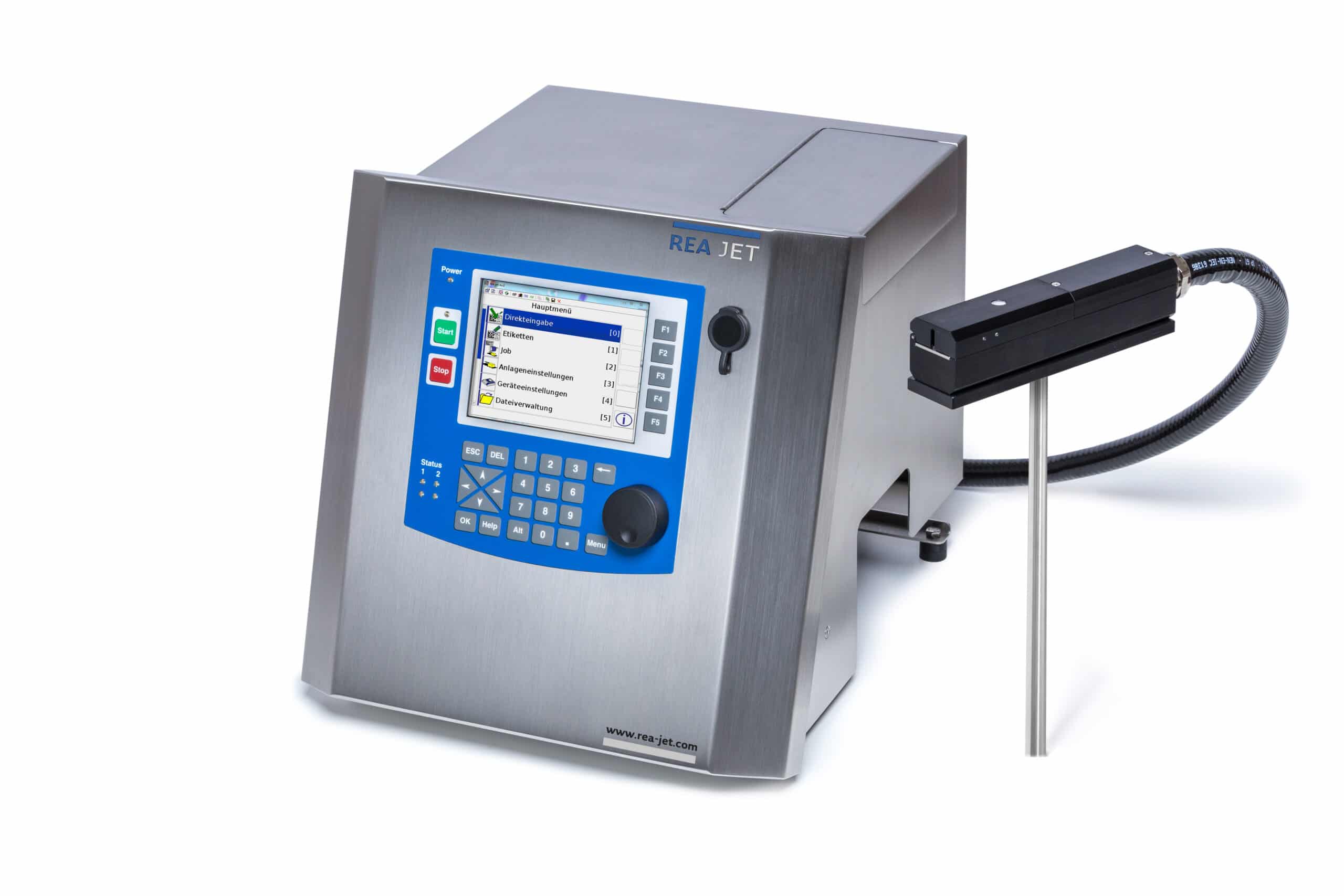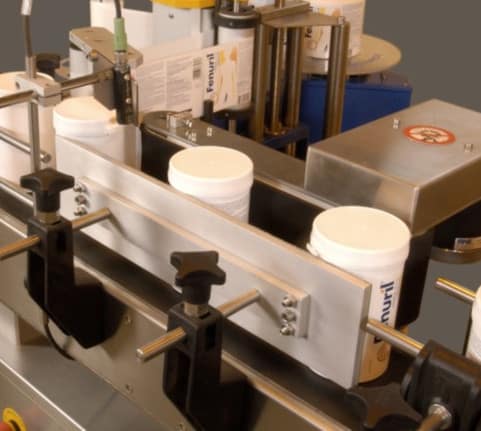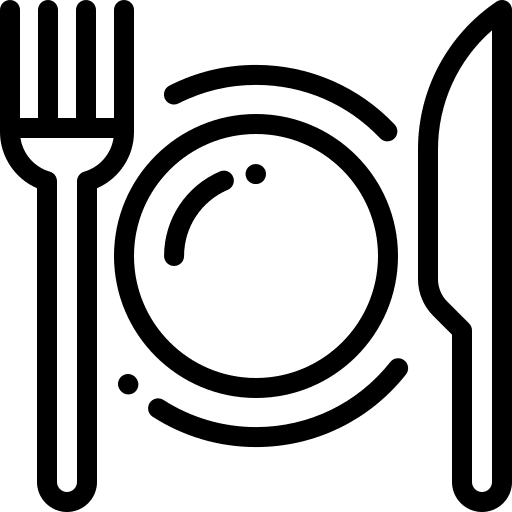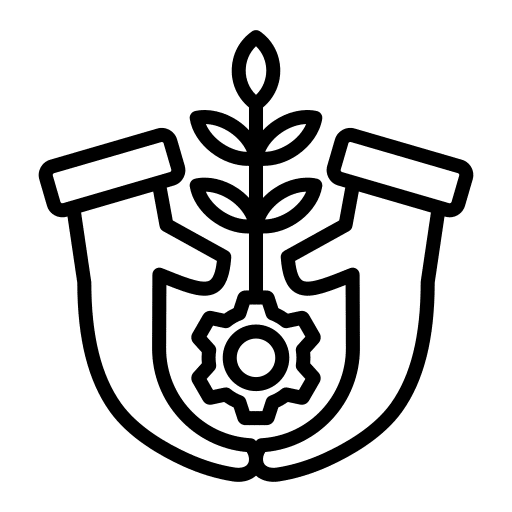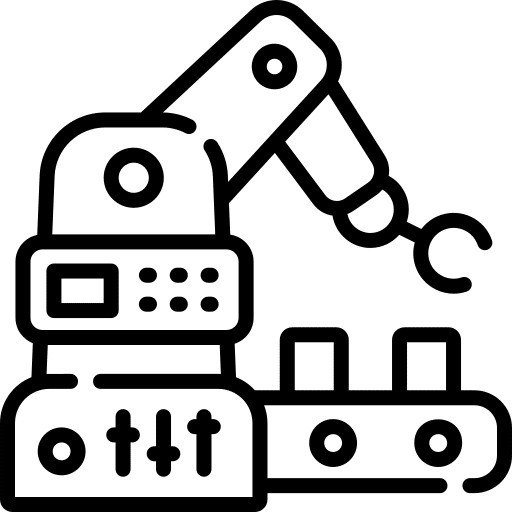Life Science INDUSTRY
SONRA ID delivers comprehensive, cutting-edge solutions specifically designed for the Life Sciences sector, addressing key challenges in product identification, quality assurance, supply chain optimization, regulatory compliance, and consumer engagement.
Through SONRA ID’s advanced technologies, businesses can strengthen their competitive advantage and drive long-term success in the dynamic Life Sciences industry.
In the life sciences industry, SONRA ID Solutions provides critical support for tracking, traceability, and compliance, which are essential for regulatory requirements, product safety, and operational efficiency.
Here are key ways SONRA ID Solutions serves this sector:
• Regulatory Compliance: Life sciences companies must comply with strict regulatory standards, including GMP (Good Manufacturing Practices) and requirements from organizations like the FDA or EMA.
SONRA ID Solutions provides robust data capture and traceability systems that record all relevant information—such as batch numbers, production dates, and storage conditions—ensuring that companies can meet stringent documentation and reporting requirements.
• End-to-End Product Traceability: SONRA ID enables full product traceability throughout the lifecycle, from raw materials to final products, including all intermediates. This is crucial in the life sciences sector for tracing active ingredients, monitoring production stages, and ensuring product authenticity.
• Sample and Specimen Tracking: Accurate tracking of biological samples and research specimens is essential for labs and research facilities.
SONRA ID Solutions uses barcoding and RFID systems to label and track each sample, providing researchers with real-time location, condition, and handling data. This traceability supports research integrity, minimizes sample loss, and prevents contamination.
• Inventory Management for Sensitive Materials: SONRA ID Solutions helps life sciences companies manage inventory more effectively, especially for temperature-sensitive materials such as biological samples, pharmaceuticals, or chemicals.
Real-time monitoring of stock levels and storage conditions, such as temperature and humidity, ensures compliance and reduces waste due to expiration or spoilage.
• Product Authentication and Anti-Counterfeiting: Counterfeiting is a major issue in the life sciences sector, particularly in pharmaceuticals.
SONRA ID provides authentication solutions to ensure product legitimacy, using secure serial numbers, tamper-evident packaging, and blockchain integration for tamper-proof tracking records.
• Quality Control and Assurance: SONRA ID Solutions enables life sciences companies to implement strict quality control measures by tracking all data related to product quality, such as environmental conditions, testing results, and production details.
This real-time data helps in identifying quality issues early, allowing corrective actions to be taken before products reach the market.
• Recall Management and Risk Mitigation: In the event of a product recall, SONRA ID’s traceability systems allow companies to locate and retrieve specific batches quickly and accurately. This capability is critical in the life sciences sector, where recalls can have severe implications for health and safety.
• Supply Chain Transparency and Security: SONRA ID Solutions enhances transparency across the life sciences supply chain, from suppliers to end users.
Real-time data monitoring of shipments, storage conditions, and inventory movement helps ensure product integrity and visibility throughout the supply chain, building trust with partners and customers.
• Data Security and Compliance with Data Integrity Standards: Data security and integrity are essential in life sciences.
SONRA ID Solutions provides secure, auditable tracking systems that comply with data integrity regulations like 21 CFR Part 11, ensuring that all data records are accurate, reliable, and tamper-proof.
How can we help your life science Business?
Reaching out to SONRA ID Solutions is simple
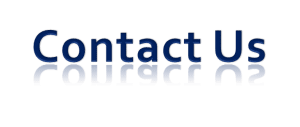
Call us at (01) 574 0400
Visit Our Website: Explore our product offerings, success stories, and industry insights to discover the right solutions for your needs.
Schedule a Consultation: Arrange a one-on-one meeting with our specialists to identify the best technologies and services for your operations.
Collaborate with Our Partners: Leverage our extensive network of partnerships for an integrated approach to your business challenges.
Barcode Systems
Barcodes in the life sciences industry play a critical role in enhancing traceability, accuracy, and compliance across pharmaceutical manufacturing, clinical trials, laboratory operations, and healthcare.
They ensure precise tracking of products, samples, and medical devices, reduce errors, improve patient safety, and meet regulatory requirements like serialization under the EU's Falsified Medicines Directive (FMD).
By integrating barcodes, life sciences companies optimize their supply chains, streamline data management, and contribute to better overall operational efficiency.
Do you have a question about how best to introduce or update your barcode systems?
Talk to our team today for some professional advice.
RFID (Radio Frequency Identification)
RFID (Radio Frequency Identification) technology is crucial in the life sciences industry, particularly in pharmaceuticals, biotechnology, and medical devices.
Here are some key ways RFID is used:
• Supply Chain Management
• Inventory Management
• Anti-Counterfeiting
•Regulatory Compliance
Here are a few examples of RFID devices used in the life science industry:
RP902 MFI
RP902
RG630 EA630
RP200 EA520
T800
T6000e
Alpha 40L RFID
If you have a specific question about RFID?
Talk to our professionals today.
QR CODES
QR codes (Quick Response codes) are increasingly being adopted in the life sciences industry for various applications, leveraging their ability to store and access large amounts of data quickly and efficiently.
Here are some key uses of QR codes in life sciences:
• Product Identification and Traceability
• Patient Safety and Medication Verification
• Lab Sample Management
• Regulatory and Compliance Support
• Interactive Packaging for Consumer Education
• Equipment Maintenance and Calibration
Label Printing Systems
• Thermal Transfer Printers: Common in pharmaceutical labelling, these printers use heat to transfer ink from a ribbon onto the label, producing durable prints that resist smudging and fading. They are ideal for printing labels that require high-quality barcodes or text that must remain legible over time.
• Direct Thermal Printers: These printers are used for shorter-life labels, where the print is applied directly to the label without the need for ribbons. They are common in pharmaceutical warehouses for labelling inventory that doesn’t require long-term durability.
• Industrial Label Printers: These printers are designed for on-demand printing in high-speed, high-volume environments such as pharmaceutical production lines or hospital pharmacies. They can print different label types and sizes with accurate data, minimizing errors.
Here are a few examples of printers used in the life science industry:
TE310
DH340THC
DH320T
TDP-324W
MH641P
MX640P
Do you have a specific question about Label Printing Systems?
Talk to our professionals today
Labelling Applications
Labelling Applications in the Life Sciences Industry
In the life sciences industry, labelling plays a critical role in ensuring product safety, compliance with regulatory standards, and efficient traceability.
Accurate and reliable labelling systems are essential for pharmaceuticals, medical devices, biotechnology, and laboratory applications.
Below are key labelling applications in the life sciences industry:
• Pharmaceutical Product Labelling
Drug Packaging Labels: Ensure that pharmaceutical products are correctly identified with essential information such as dosage, expiration date, batch number, and active ingredients.
Serialization & Traceability: Labels with serial numbers and barcodes enable batch and lot traceability, supporting efficient recall management and regulatory compliance
Tamper-Evident Labels: Provide assurance that pharmaceutical products are not compromised, ensuring patient safety.
• Medical Device Labelling
UDI (Unique Device Identification) Compliance: Medical devices require labels that include a unique identifier, helping to track and trace products throughout their lifecycle.
Sterilization and Handling Instructions: Labels indicate if the device is sterile, and provide handling and storage instructions to ensure patient safety.
Regulatory Compliance: Labels must adhere to global regulatory standards such as the FDA’s Medical Device Regulations and the EU Medical Device Regulation (MDR).
• Biotechnology & Laboratory Samples
Sample Identification: Clear, legible labelling on vials, tubes, and Petri dishes ensures that biological samples are tracked from collection to analysis.
Barcoding & RFID: Barcode and RFID labels improve the management of biological samples and reagents, making it easier to track inventory and reduce the risk of errors.
Safety & Hazard Communication: Labels include necessary hazard symbols, safety precautions, and handling instructions for laboratory chemicals and reagents.
• Cold Chain Labelling
Temperature-Sensitive Products: Pharmaceutical products and biologics that require controlled temperatures during storage and transportation need specialized labels. These include temperature indicators or time-temperature indicators (TTIs) that provide visible evidence if a product has been exposed to temperature excursions.
Regulatory Requirements: Cold chain labelling ensures compliance with international standards like GDP (Good Distribution Practices) and GMP (Good Manufacturing Practices).
• Clinical Trials and Research
Patient and Sample Identification: Labels on clinical trial materials and research samples ensure proper tracking of patient data, dosage, and sample results.
Compliance with Regulatory Standards: Labels must include trial information, and patient instructions, and comply with GxP (Good Clinical Practice) guidelines.
•Compliance with Global Standards
FDA & EU Regulations: Labelling must meet the specific standards set by regulatory bodies such as the FDA, EMA, and other global authorities. This includes regulatory text, symbols, and formatting to meet strict requirements for medical devices, pharmaceuticals, and biologics.
Labelling applications are crucial in the life sciences industry for ensuring product safety, regulatory compliance, and operational efficiency.
As regulations evolve and products become more complex, investing in automated, reliable labelling systems is essential for maintaining high standards and avoiding costly mistakes.
Here are a few examples of Labelling Applications in the life science industry:
Wrap Around Labelling
Do you have a specific question about Labelling Applications?
Talk to our professionals today
Linerless
Linerless labels are making a notable impact in the life sciences industry, including areas like pharmaceuticals, biotechnology, and clinical laboratories.
These labels, which lack the traditional release liner, offer several distinct benefits that align well with the sector's regulatory, environmental, and operational needs.
Key Benefits and Applications of Linerless Labels in Life Sciences:
Sustainability and Waste Reduction
• Liner-Free Design: The absence of a backing liner in linerless labels eliminates waste from used liners, reducing the overall waste stream.
This supports sustainability initiatives in an industry increasingly focused on environmental impact.
• Reduced Carbon Footprint: Without liners, there’s less raw material used, which also means fewer resources needed for production, storage, and disposal.
This eco-friendly approach is especially valuable as the life sciences industry shifts toward greener practices.
Enhanced Efficiency and Cost Savings
• Higher Label Capacity: Linerless rolls contain more labels per roll, allowing longer production runs before replacements are needed.
This reduces downtime and boosts efficiency, which is crucial in high-throughput environments like pharmaceutical production.
• Reduced Storage and Shipping Costs: By eliminating the liner, rolls are smaller and easier to store and transport. This can significantly cut costs, especially for operations with high labeling demands, such as drug manufacturing or laboratory specimen labeling.
Regulatory Compliance and Safety
• Durable for Critical Environments: Linerless labels can be designed to withstand challenging conditions, such as cryogenic storage for biological materials or chemical exposure, helping companies meet stringent regulatory standards.
• Minimized Contamination Risk: Since linerless labels are less likely to curl or peel, they reduce the risk of adhesive contamination, an essential factor in sterile environments where product integrity is vital.
Integration with Advanced Tracking and Identification
• Auto-ID Compatibility: Linerless labels support technologies like barcoding and RFID tagging, enabling detailed tracking and traceability for products, which is crucial in life sciences for complying with stringent regulatory guidelines.
• On-Demand, Variable Printing: The flexibility of linerless labels supports printing variable information like serial numbers, expiration dates, and lot numbers. This ensures that each product or specimen can be accurately identified and traced, which is vital in clinical trials and regulated manufacturing.
Improved Workplace Safety
• Reduced Workplace Hazards: Liners can create slipping hazards if not disposed of properly, particularly in high-paced environments like laboratories.
By eliminating liners, these labels make workplaces safer for employees.
The use of linerless labels in the life sciences sector supports operational efficiency, regulatory compliance, and sustainable practices, making it a forward-looking choice that aligns with industry goals for safety, accuracy, and environmental stewardship.
Here are a few examples of linerless Devices:
HM Linerfree
DA320
TH320THC
Alpha-40L
Mobile Devices
Mobile Devices, such as smartphones, tablets, handheld computers, and barcode scanners, have become indispensable tools in the life sciences industry.
They provide enhanced mobility, real-time data access, and streamline operations, improving efficiency, accuracy, and compliance.
These devices are used across various sectors, including pharmaceuticals, medical devices, biotech, clinical trials, and laboratories.
Key Applications of Mobile Devices in the Life Sciences Industry:
• Field Service and Maintenance for Medical Devices
• Pharmaceutical Inventory and Warehouse Management
• Medical Device and Pharmaceutical Labelling
• Clinical Trials and Patient Data Management
• Regulatory Compliance and Auditing
• Laboratory Workflows
• Sales and Marketing for Pharmaceuticals and Medical Devices
• Telemedicine and Remote Healthcare
• Healthcare Training and Education
• Patient Engagement and Self-Care
Mobile devices are transforming the life sciences industry by improving operational efficiency, enhancing regulatory compliance, and enabling better patient care.
From pharmaceutical inventory management and clinical trials to remote healthcare and telemedicine, these devices play a pivotal role in shaping the future of healthcare and life sciences.
Here are a few examples of Mobile Devices being used in the Life Science Industry:
HT730, EA660, PA768 ,RT112 ,TB110 ,MS632 ,WD200 ,MS652 Plus ,TS100,
MS852 LR, MS852B LR, MS852B Plus
Do you have a specific question about Mobile Devices?
Talk to our professionals today
Custom Software
Custom software plays a crucial role in the life sciences industry by addressing specific needs that off-the-shelf solutions often cannot fully accommodate.
Whether in pharmaceuticals, biotechnology, medical devices, clinical research, or laboratories.
Custom software helps improve efficiency, compliance, data management, and overall operational performance.
Do you have a specific question about Custom Software?
Talk to our professionals today
Batch and Lot Tracking Systems
Batch and lot tracking in the life sciences industry is a critical process for ensuring product safety, quality, regulatory compliance, and traceability.
Whether dealing with pharmaceuticals, medical devices, biologics, or laboratory samples, accurate tracking of batches and lots is essential to ensure that each product meets regulatory standards and can be traced throughout its lifecycle.
Popular in the Life Science industry
BROWSE MORE
rea jet sc 2.0
Product details
• Vertical resolution: 48 pixels, for up to eight lines of text
• Stainless steel housing, IP 54
• Graphical user interface in over 20 languages
• Support of True Type Fonts (TTF)
• Ready for Industry 4.0
• Small, compact, and lightweight, only approx. 20 kg
• State-of-the-art operating concept: REA JET TITAN Platform
Specification
Resolution
300 dpi (12 dots/mm)
Printing method
Direct thermal/Thermal transfer
Display
Colour LCD with buttons
Hardwire Connectivity
Ethernet
GPIO
Parallel port
Serial RS-232
USB
USB Host
Wireless Connectivity
Wi-Fi with Bluetooth
Enterprise Printer Management
TSC Console
SOTI Connect (license required)
Type
Print engine
Max. Print Speed
305mm (12”)/second
Max. Print Width
168 mm (6.61”)
Max. Print Length
6,604mm (260“)
RAM
512 MB SDRAM
Flash
512 MB
Expandable Flash
Micro SD card reader for memory expansion, up to 32GB
Max. Media Width
180mm (7.09“)
Media Type
Continuous, die-cut, black mark, fan-fold, notch
Max Ribbon Length
600 Meters
Ribbon Width
180mm (7.1″)
Construction
Die-cast based print mechanism
Programming Languages
TSPL-EZD
Industries and Applications
✔ Manufacturing
✔ Pharmaceutical
✔ Healthcare
✔ Food & Beverage
Download
Download Brochure: REA Jet SC 2.0
wrap around labelling
Wrap-around labelling (also known as full-wrap labelling or full-body labelling) is a labelling technique used in packaging where a label is wrapped around the entire surface of a container or product.
This labelling technique allows for maximum surface area coverage and visibility, as the label is visible from all angles.
It is commonly used in the labelling of cylindrical containers such as bottles, cans, and jars, but can also be used on other shapes.
Wrap-around labelling is often used in the food and beverage industry to provide information such as product names, ingredients, nutritional information, and other important information required by law.
It can also be used for branding and marketing purposes, as the large surface area allows for more space to display graphics and other promotional content.
Industries and Applications
✔ Food and Beverage
✔ Manufacturing
✔ Agribusiness
✔ Pharmaceutical


